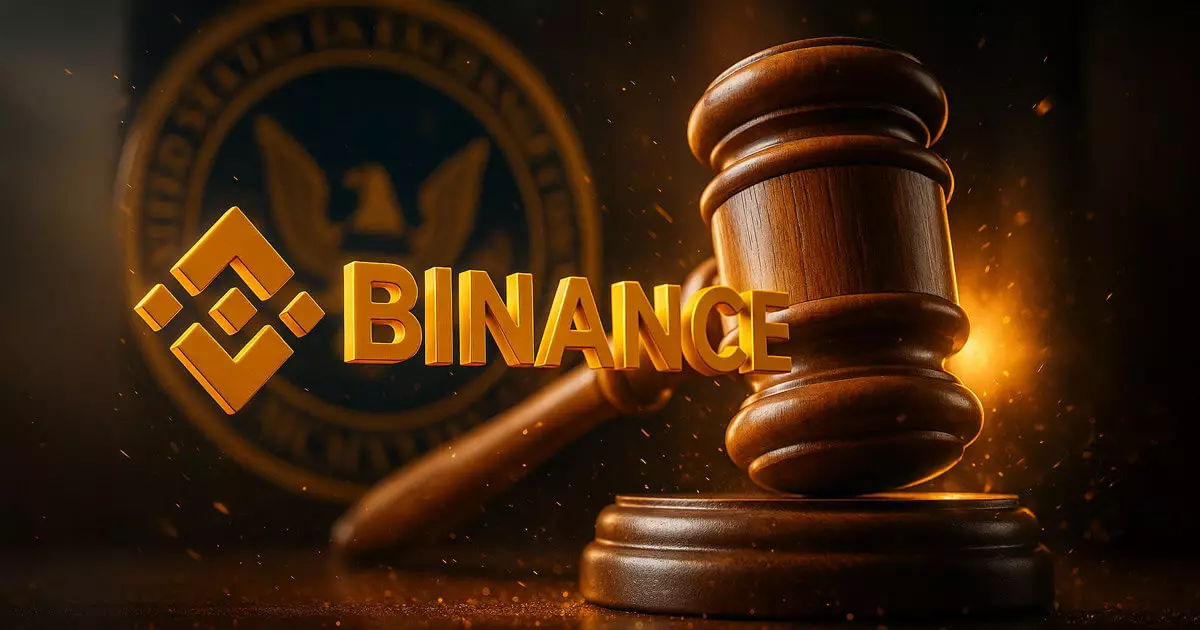The dismissal of the Securities and Exchange Commission’s (SEC) complaint against Binance has sent ripples throughout the cryptocurrency ecosystem, painting a complex picture of regulatory engagement in a space previously characterized by uncertainty. While some may view the SEC’s withdrawal as a sign of regulatory weakness, the reality is far more nuanced. The legal saga, involving accusations that Binance and its founder, Changpeng ‘CZ’ Zhao, operated as unregistered securities exchanges, underscores a significant shift in how regulators are beginning to engage with digital assets. With this case suspended, it seems that both the SEC and Binance recognized the need for a more collaborative approach to oversight, paving the way for a potentially healthier market model.
In an era where digital assets are often likened to the Wild West of finance, this case’s resolution emphasizes the growing need for a balanced regulatory framework that fosters innovation without overreach. The temporary halt put in place by Judge Amy Berman Jackson reflects a judicial acknowledgment of this requirement, giving credence to the notion that regulatory bodies must evolve alongside the technologies they seek to govern.
Transparency vs. Enforcement: The New Mantra
Binance hailed the SEC’s dismissal as a “huge win for crypto,” positioning the outcome not just as a legal victory but a philosophical one. By arguing against regulation by enforcement, Binance and its advocates have spotlighted a fundamental critique of how governmental entities have historically approached emerging technologies.
The criticism lies in the perception that regulatory authorities have often prioritized punitive measures over educational outreach and transparent frameworks. For a burgeoning industry like cryptocurrency, which thrives on innovation, fostering an environment that both protects consumers and empowers them with knowledge is crucial for sustainable growth. The consent order requiring Binance to ensure transparency in custodial controls and asset segregation is a positive step in that direction, illustrating a commitment to responsible governance even in the absence of overt regulatory pressure.
The Implications for Future Enforcement Actions
While the dismissal of the SEC’s complaint appears to be a significant win for Binance, it does not equate to a blanket approval of the company’s practices. The consent decree remains in effect, ensuring continued scrutiny and accountability. This paradox illustrates a critical aspect of regulatory frameworks: that even in victory, compliance and vigilance remain non-negotiable.
Furthermore, the judgment sets a precedent that can have lasting implications for future enforcement actions in the cryptocurrency sector. Should the SEC choose to pursue new complaints against other major players, they must do so with caution, given the focus on collaboration highlighted by this case. A shift towards penalties only when absolutely necessary could allow industry leaders to innovate without the constant threat of sudden enforcement actions that could stifle technological advancement and market evolution.
Broader Industry Impact and Moving Forward
The case against Binance serves as a bellwether moment not only for the exchange but for the broader cryptocurrency landscape. It illustrates the precarious balance between regulatory oversight and fostering a climate conducive to innovation. If regulators lean too heavily towards punitive measures, they risk driving innovation into jurisdictions with friendlier climates, ultimately diminishing America’s standing as a global leader in technology.
With China ramping up its digital yuan initiatives and European nations exploring their own central bank digital currencies (CBDCs), the U.S. must recognize that an overly aggressive stance on regulation could push companies like Binance abroad. The SEC must pivot towards a more nuanced understanding of cryptocurrency, embracing dialogue and collaboration over enforcement to ensure the U.S. remains a vibrant hub for digital asset innovation.
In essence, while the dismissal of the SEC’s lawsuit represents a win for Binance, it simultaneously serves as a clarion call for U.S. regulators to pivot towards cooperative governance. By fostering an environment where innovation can flourish while ensuring consumer protection, the SEC has a unique opportunity to redefine its role in the evolving landscape of digital finance.


Leave a Reply